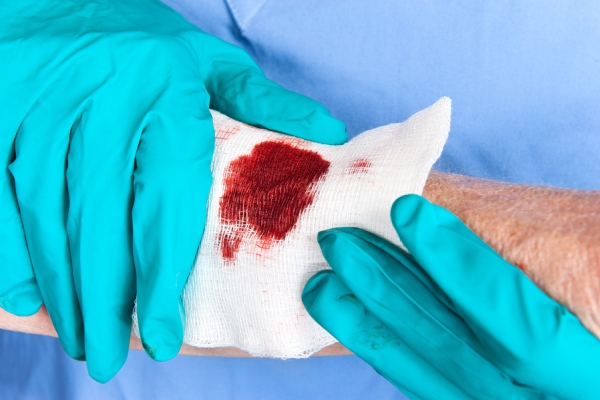BBP and Helping the Injured

Bloodborne pathogens are microorganisms, normally carried in infected blood and bodily fluids, that can cause diseases, some fatal, such as Hepatitis B and C, as well as HIV. Bloodborne pathogens must find a direct route of entry into the body for infection to be possible. Bodily fluids can also splash into the eyes and cause infection. Exchange of these body fluids must be direct. Thus, you cannot contract a bloodborne pathogen disease when an infected person touches you or sneezes/coughs on you.
Here at our facility the one opportunity we have to come in contact with a bloodborne pathogens is while we are trying to assist an injured coworker who is bleeding. Here are some things to remember:
Responding to injuries
- If a coworker has a minor accident that causes bleeding, try to have the victim bandage his or her own wound.
- If the injury is serious, call the emergency response team.
- If you don’t have time to wait for the emergency response team, make sure you take universal precautions.
- Remember that vomit, burns, abrasions, external and internal injuries can release bodily fluids.
- When removing disposable gloves, roll the first glove off the hand inside out.
- Place disposable gloves in an approved biohazard bag. Wash your hands immediately after removing any gloves.
- If you have been exposed to a victim’s bodily fluid, wash the affected area thoroughly with soap and water. Contact a medical professional and report the incident to your employer for further action, should it be appropriate.
